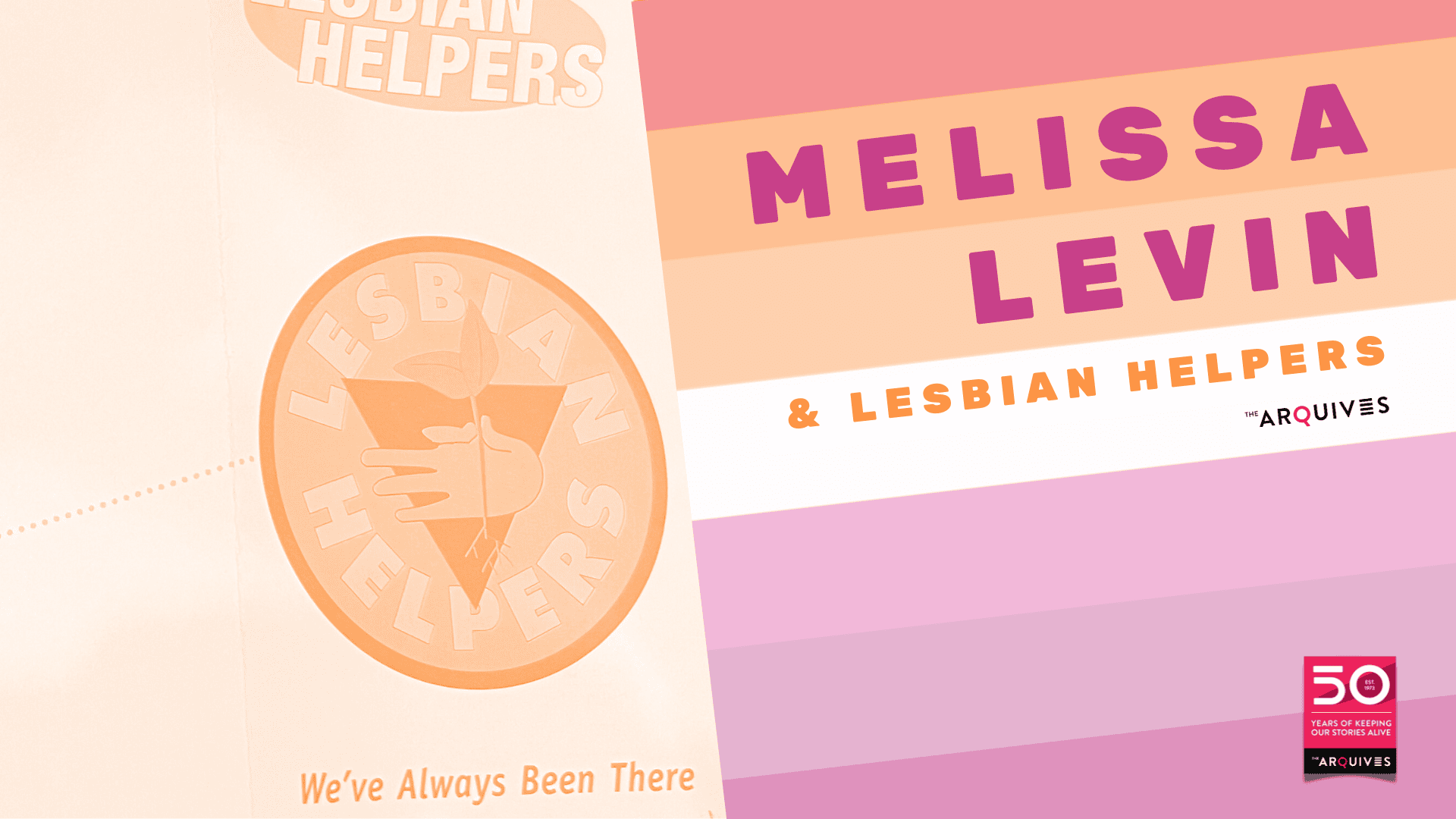Volunteer Em Barton visits The ArQuives to look through fonds of the late artist, educator and advocate, Melissa Levin, before our archivists begin to process them.
I was greeted by one of our wonderful archivist Daniel and massive boxes full of all the materials that make up a life yet to be thoroughly cataloged and organized. Sketchbooks, diaries, VHSs, production documents, and family photographs collected in banker’s boxes index the life of a passionate community member who felt that politics and art were co-constitutive. Levin was born on the East Coast of the United States before moving to San Francisco, where she became involved in AIDS activism. Later, she moved to Chicago to pursue her Master of Fine Arts. The materials of her fonds attest to the multi-mediality of her work: video, film, photography, textiles, drawings, and even puzzles.
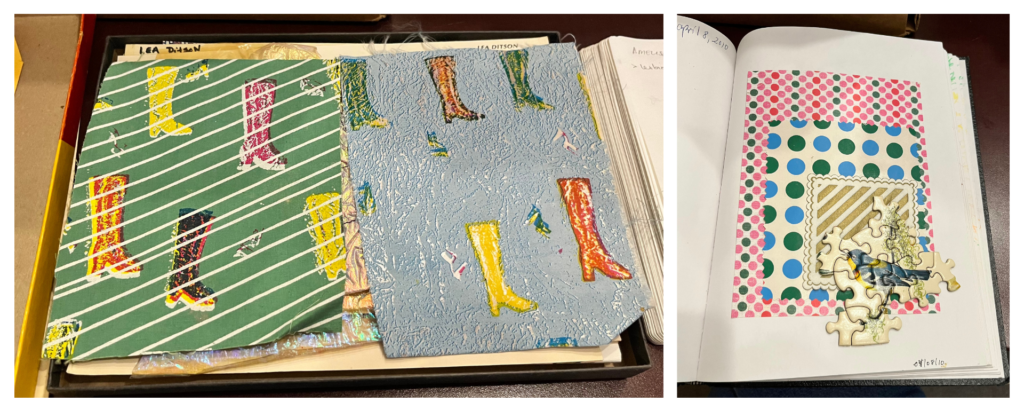
Perhaps her most whimsical and practical intervention was Lesbian Helpers. Like a girl scouts’ patch, Lesbian Helper circles the outside perimeter while a helping hand pinching a green stem with two lush green leaves and roots intact stretches over an inverse black triangle. As one brochure reads, Levin began the project after moving from San Francisco to Chicago in 1996 (later opening up in Toronto, too). The intention of the project was “to increase lesbian visibility in the area, and to promote a safer environment for lesbians”. Lesbian Helpers could carry around little business cards: “YOU HAVE BEEN ASSISTED BY A LESBIAN HELPER” with “Think Globally” and “Act Locally” below. These acts of kindness and their consequential nurturing offered “not only a community of women who want to make a difference, but a feeling of empowerment as they fight against oppression”. Just like girl scouts, Lesbian Helpers could receive additional badges for their achievements: visibility, lost and found, giving directions, first aid, automotive help, helping nature, and recruiter.
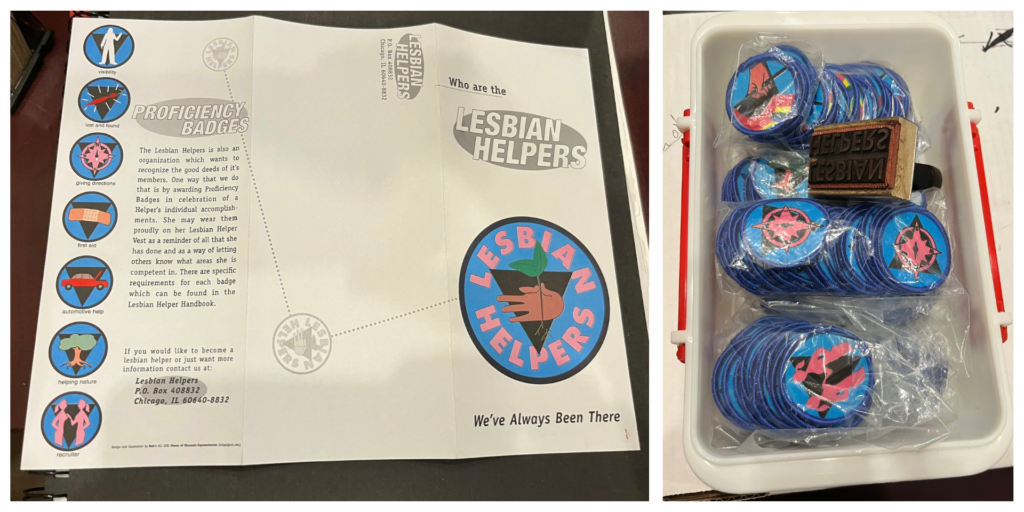
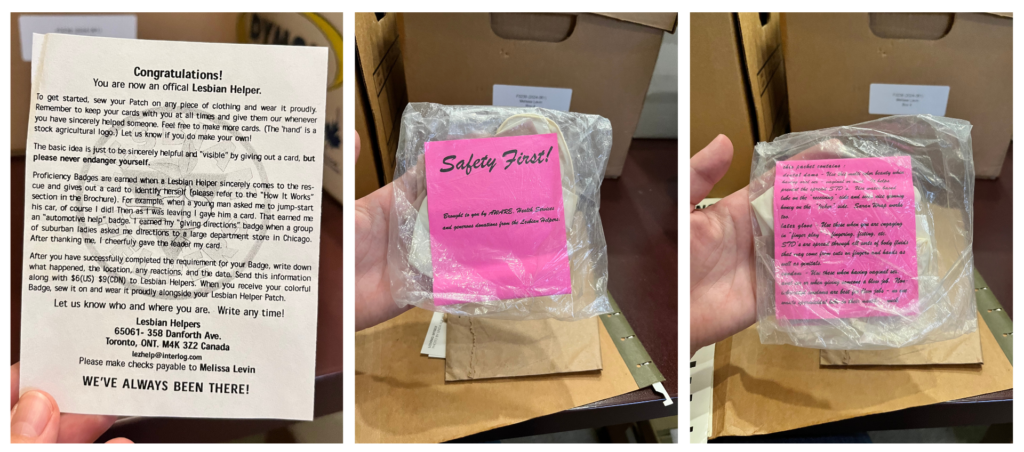
These simple but necessary acts of community building create interventions in the neoliberal alienation and our continued exploitation as a newly inaugurated consumer class. Levin, coming out of AIDS activism, must have understood the nature of (collective) power and our need to hold on to it. Indeed, much of her archive attests to the innate connections between art, community, and political organizing. In a manila folder, Levin kept activist materials and news reporting about the crisis and its death toll. Between an issue of Newsweek honouring the lost and an article by Larry Kramer, a black and white image of a coffin covers the front of a postcard while the back is addressed to 41st president of the American empire, George H. Bush. The postcard, coming from ACT UP’s Witness and Coffin projects, leaves a space for the name of a lost loved one and offers the card as a memorial and condemnation of the deaths of 24,000 people since Bush took office. H. Bush’s son makes an appearance as well: W’s face adorns a one-dollar bill, calling out his invasions of Iraq and Afghanistan as capitalist greed and imperial resource extraction that took the lives of millions.
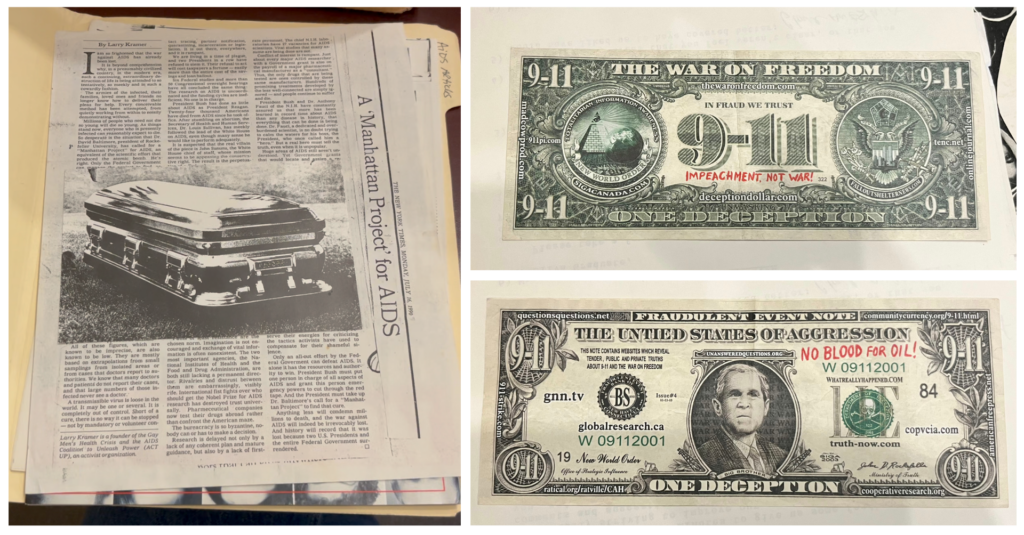
Levin’s political and artistic endeavours touch the local and the global and speak to micro and macrocosms of queer life. Another way that art and community coalesce in her fonds is through her extensive film and video work. A banker’s box is filled to the brim with DVC and VHS cassettes. Levin had worked with Inside/OUT film and video festival (now Inside Out 2SLGBTQ+ Film Festival) on their Queer Youth Digital project and made documentaries about the lives of queer students and teachers (Class Queers, dir. Levin & Roxane Spicer, 2003). Beyond her amazing, prolific, and extensive work as an artist and activist, Levin left behind personal materials (diaries, photographs, elementary school documents) that represent her passion and attachment to her community, here and everywhere. There are so many wonderful avenues waiting to be delved into.
Author bio: Em Barton has volunteered (originally on Communications, and more recently on Facilities and Curatorial committees) at The ArQuives since 2018. They research queer/feminist grassroots moving image scenes in Toronto and love queer history and all its ephemera.

